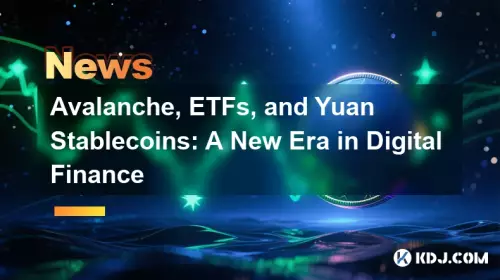 |
|
 |
|
 |
|
 |
|
 |
|
 |
|
 |
|
 |
|
 |
|
 |
|
 |
|
 |
|
 |
|
 |
|
 |
|
加密货币新闻
James Howells, the Bitcoin Miner Who Lost His Fortune to a Landfill, Unveils a New Plan to Recover His Lost Cryptocurrency
2025/01/10 17:30

James Howells, a 39-year-old IT worker turned entrepreneur, began mining Bitcoin in 2009. He claims to have mined 8,000 coins when they were practically worthless. He kept them on a 2.5-inch laptop hard drive, which he stashed in a desk drawer.
However, in 2013, Howells's partner at the time mistakenly disposed of the hard drive along with other unwanted items. According to Howells, the drive ended up in the Docksway landfill in Newport, South Wales.
Over the years, the price of Bitcoin has skyrocketed, pushing the potential value of Howells's inaccessible holdings to more than £600 million (around $780 million).
In a last-ditch effort, Howells took his case to the High Court in Cardiff last month, demanding that the council either allow him to organize a landfill dig or pay up to £495 million in damages. He argued that a specialized team of recovery engineers could locate the disk at no cost to local taxpayers.
However, Newport City Council sought to have the claim thrown out, citing legal and environmental concerns. A key point of contention was the council's position that once items enter a municipal landfill, ownership transfers to the local authority. Furthermore, the council's legal team argued that opening up the site could lead to significant ecological disruption and regulatory complications.
On January 9, Judge Keyser KC dismissed Howells's claim, declaring that there was “no realistic prospect” of success at trial.
While expressing disappointment with the verdict, Howells stressed that the ruling would not end his pursuit of a solution, describing the council's approach as “living in the dark ages” for refusing to engage with his proposals.
Undeterred by the judgment, Howells has unveiled what he calls a “tokenization” scheme—an initiative he hopes will help him monetize the lost Bitcoin without physically retrieving the hard drive.
Drawing a parallel to historical gold-backed banknotes, Howells says he wants to create a new cryptocurrency, temporarily dubbed “James Coin,” whose value would mirror that of the inaccessible Bitcoin locked in the landfill.
“Everyone can see the Bitcoin is never going to move,” he said. “I can’t get the private key, so it’s going to be there for eternity. But if I can legally establish ownership of the coins, I can back a new token with them and trade that token on the cryptocurrency market.”
Although he concedes that this approach would not fully recover the £600 million, he believes it could still provide him with a modest return while creating a crypto venture that might appeal to investors.
He also floated “Ceiniog Coin” (ceiniog being the Welsh term for a penny) as a potential alternative name, hoping to capture a distinctly Welsh identity.
Since embarking on his crusade to unearth the hard drive, Howells has assembled an international team of investors, engineers, and legal advisers. They proposed a meticulously planned excavation designed to take between 18 and 36 months, followed by a year of landfill remediation.
Under Howells's plan, the entire project would be financed by private investors, negating any direct costs to the council.
In an attempt to sweeten the proposal, he offered the local authority 10% of any recovered Bitcoin value. However, the council's legal representatives labeled this an unacceptable “bribe” and said it would force the municipality to “play fast and loose” with environmental regulations.
They also cited strict permitting rules that prohibit disturbances within the landfill site.
Newport City Council emphasized that it has consistently refused access to the landfill on the grounds of environmental risk and insufficient legal basis for Howells's claim.
In a statement released after the High Court judgment, the council welcomed the decision, noting that it had “already cost countless hours of officer time” and that it “cannot authorize digging on such a scale without breaching environmental permits.”
The lost hard drive has overshadowed Howells's life for more than ten years. Once employed in IT, he says he left his job to dedicate himself full-time to the recovery effort.
Securing support from American hedge funds and other backers, he went to court armed with legal arguments affirming his right to search for what he considers his “intellectual digital property.”
Although Judge Keyser upheld the council's position, Howells believes his ownership of the Bitcoin was tacitly acknowledged by the court.
“I’m disappointed they wouldn’t let me proceed to trial, but I was encouraged when the judge said that the council might own the physical hard drive, but I am still the owner of the Bitcoin,” Howells explained.
He now awaits the final order in hopes that it will confirm his ownership in a way that legally supports his tokenization project.
Despite the High Court loss, Howells remains resolute. He has vowed to escalate the
免责声明:info@kdj.com
所提供的信息并非交易建议。根据本文提供的信息进行的任何投资,kdj.com不承担任何责任。加密货币具有高波动性,强烈建议您深入研究后,谨慎投资!
如您认为本网站上使用的内容侵犯了您的版权,请立即联系我们(info@kdj.com),我们将及时删除。
-

- 大摇摆马,硬币和冰淇淋:澳大利亚偶像的甜蜜旅程
- 2025-09-26 09:47:15
- Gumeracha的大型摇摆马为纪念硬币,邮票和冰淇淋味而得分!风化暴风雨和盗窃后的甜蜜奖励。
-

- PI网络,价格预测和模因市场:纽约分钟
- 2025-09-26 09:45:00
- PI网络面临挑战,因为Brett层和其他模因硬币获得了吸引力。模因市场中PI是否有未来,还是该在其他地方看的时候了?
-

- AIXA矿工:用云解决方案革新比特币采矿
- 2025-09-26 09:30:19
- 探索AIXA矿工如何在比特币云采矿中更改游戏,为每个人提供可访问,环保和有利可图的机会。
-

-

-

-

-

- 安东尼奥·布朗,查理·柯克和爱泼斯坦:纽约关于趋势主题的纽约
- 2025-09-26 08:11:00
- 从纪念硬币到法律压力,探索了安东尼奥·布朗,查理·柯克和爱泼斯坦档案的意外交叉点。什么是嗡嗡声?
-






























































